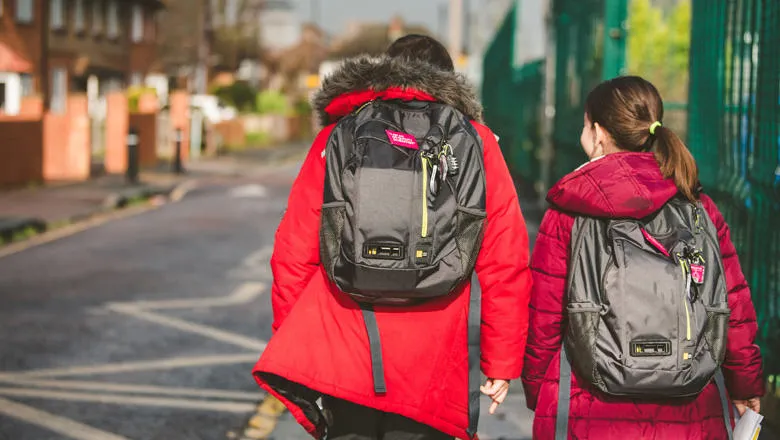Preliminary findings from the study, led by UCL and Public Health England researchers, suggest that up to one in seven children and young people who caught the virus may still have symptoms 15 weeks later

Up to one in seven children and young people who caught SARS-CoV-2 may have symptoms linked to the virus 15 weeks later, suggest preliminary findings from The Children and young people with Long Covid (CLoCk) study, the world's largest study on long Covid in children, led by UCL and Public Health England researchers, with collaboration across multiple universities in the UK, including King's College London.
Despite acute COVID-19 illness being milder in children and young people, it should not be assumed that those at low risk of life-threatening acute infections do not suffer the longer-term consequences of SARS-CoV-2 infection.
For the study, published on the preprint site Research Square and funded by the UK's National Institute for Health Research (NIHR) and UK Research and Innovation (UKRI), researchers surveyed 3,065 11- to 17-year-olds in England who had positive results in a PCR test between January and March as well as a matched control group of 3,739 11- to 17-year-olds who tested negative over the same period.
When surveyed at an average of 15 weeks after their test, 14% more young people in the test positive group had three or more symptoms of ill health, including unusual tiredness and headaches, than those in the test negative group, while 7% (one in 14) more had five or more symptoms.
This research gives us a clearer picture of the type and number of persistent symptoms reported in children after SARS-CoV-2– Trudie Chalder, Professor of Cognitive Behavioural Psychotherapy at King's and co-investigator on the CLoCK study
The researchers said the data suggested that, over seven months between last September and March, at least 4,000 and possibly 32,000 teenagers of the total population of 11- to 17-year-olds who tested positive in England may have had multiple (three or more) symptoms tied to Covid-19 infection after 15 weeks.
The lower estimate (at least 4,000) relates to a best-case scenario, in which only the teenagers who responded to the survey had any persisting problems and those who chose not to respond the survey had completely recovered. This would mean that across England during those seven months, 4,273 11- to 17-year-olds would still have three or more physical symptoms 15 weeks post-test and 2,137 would have five or more symptoms physical symptoms 15 weeks post-test.
These figures are over and above the background symptom levels of teenagers in the control group who tested negative.
Lead author Professor Sir Terence Stephenson (UCL Great Ormond Street Institute of Child Health) said: 'There is consistent evidence that some teenagers will have persisting symptoms after testing positive for SARS-CoV-2. Our study supports this evidence, with headaches and unusual tiredness the most common complaints.'
Professor Stephenson added: 'The difference between the positive and negative groups is greater if we look at multiple symptoms, with those who had a positive test twice as likely to report three or more symptoms 15 weeks later'. This suggests that number of symptoms should be considered when clinicians seek to define long Covid in children.
For later studies, the researchers will analyse survey results at six months, a year and two years from the time of the PCR test.
Professor Lucy Chappell, Chief Executive of the NIHR, said: 'Parents and young people are understandably concerned about the risk of long-term symptoms following SARS-CoV-2 infection. This large study, part of NIHR's nearly £40 million investment into long COVID research, helps to quantify that risk and indicates that multiple ongoing symptoms may be a useful measure for long COVID.'
Dr Jonathan Pearce, Director of Covid-19 Response, UKRI's Medical Research Council said: 'This study is very important as it will inform our understanding of the long-term impacts of Covid-19 on the physical and mental health of children and young people. Comparing children who tested positive for SARS-CoV-2 with children who did not, allows researchers to identify the contribution of Covid-19 to their symptoms. The more we can learn about how people react to Covid-19 in both the short and longer term, the better equipped we will be to help affected individuals and to deal with future infectious disease risks.'
The Children and young people with Long Covid (CLoCk) study was led by UCL and Public Health England and involves collaboration with researchers at King's College London and the universities of Edinburgh, Bristol, Oxford, Cambridge, Liverpool, Leicester, Manchester, Imperial College London, Public Health England, Great Ormond Street Hospital and University College London Hospitals (UCLH).






